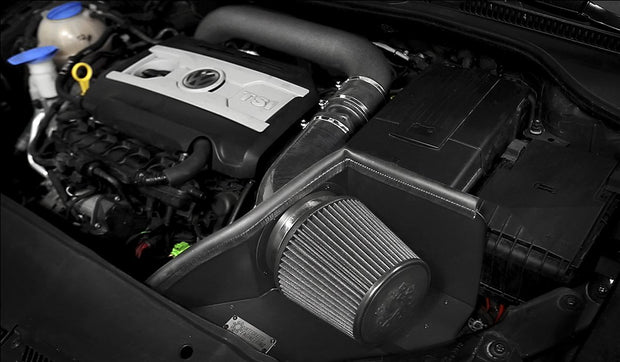
Although Volkswagen cars are known for their flawless performance, the standard arrangement may seem limited to aficionados who need additional power. Luckily, there are various ways to safely and successfully raise the horsepower of your VW. Whether you want a whole makeover or just a little improvement, the correct upgrades will change your driving experience.
1. Upgrade Your Air Intake System
The engine of an automobile must always be supplied with air if it is to run as it should. One of the easiest and most reasonably priced methods to increase horsepower is by upgrading the air intake system. For example, a VW cold air intake guarantees that denser, cooler air gets to the engine, therefore optimizing power output and combustion efficiency. Modern aftermarket air intakes are made to lower limits and let more air pass into the engine. For best results, look for a premium system built of robust materials, such as aluminum or high-performance plastics, then match it with a reusable air filter. Without a major financial impact, you will find better throttle response and a little rise in horsepower.
2. Install a Performance Exhaust System
The way your engine may release used gases depends much on the exhaust system of your VW. Changing to a performance exhaust system lowers back pressure, therefore enabling your engine to breathe more easily and generate more power. VW owners like cat-back systems quite much. Without affecting emissions regulations, they replace the catalytic converter’s pipework from the tailpipe to the tailpipe, therefore improving exhaust flow. Add high-flow catalytic converters or even a modified exhaust manifold for more significant horsepower improvements. These parts boost flow efficiency and could give your car’s sound profile a deep, sporty growl.
3. Tune Your ECU
Comprising air-fuel ratios, ignition timing, and boost pressure, the Engine Control Unit (ECU) is the brain of your VW’s engine. Remapping, also referred to as an ECU tune, changes these parameters to release greater power. Among the most powerful changes you can make without really changing the engine is For turbocharged VW models—such as those in the Golf GTI or Passat series—ECU tuning is particularly successful. A tune can yield significant horsepower increases by raising boost pressure and improving fuel delivery. The finest results come from custom tunes fit for your driving style and additional improvements. Make sure your automobile is in first mechanical order before tuning. Additionally, take into account the fuel quality and driving circumstances in your area and select a reliable tuning service that provides post-tune assistance.
4. Add a Turbocharger
Forced induction is the approach of choice for major power increases. A turbocharger or supercharger drives more air into the engine, enabling it to burn more gasoline and generate more power. Although many VW models already have turbocharged engines, upgrading to a bigger or more efficient turbo may produce amazing effects. Another choice is superchargers, but less typical in VW cars. Perfect for drivers looking for enhanced acceleration and throttle responsiveness, they offer quick power enhancements. Still, they may call for more significant engine and supporting system changes.
5. Upgrade Your Fuel System
The fuel system has to keep up to preserve correct air-fuel ratios when you raise the air intake and pressure. Changing the fuel injectors, fuel pump, and pressure regulator guarantees your engine runs with the required fuel for maximum performance levels. High-performance fuel injectors supply a bigger amount of fuel, enabling your engine to create more power. Pair them with a high-flow fuel pump to prevent fuel starvation during high-demand conditions. Make sure your ECU tune allows these improvements to maximize performance as well.
6. Install a Performance Intercooler
If your VW is turbocharged, power output and dependability can be much enhanced with a performance intercooler. Before it gets into the engine, the intercooler cools the compressed air from the turbo. Denser and with more oxygen for burning, cooler air generates more power. For manufacturing settings, stock intercoolers are usually sufficient, but when boost pressure rises, they might become a bottleneck. Larger or more efficient intercoolers provide constant performance, particularly in hot climes or during extended high-demand driving. Select an intercooler especially made for your VW model to enhance efficiency and ease installation.
7. Use Lightweight Components
One less-known but very successful approach to improving the performance of your VW is weight loss. Although it increases power-to-weight ratio rather than directly horsepower, it speeds up and increases the responsiveness of your vehicle. Think of lightweight wheels, which lower rotational mass and enhance acceleration, braking, and handling. Additionally, cutting off excess weight are aluminum or carbon-fiber components for the body and interior. Even switching to a lightweight flywheel will help to increase throttle response and provide greater engine vitality.
Conclusion
Improving the horsepower of your VW should not involve sacrificing dependability or breaking the budget. There is a solution for every budget and ability level, from basic improvements like a cold air intake to more sophisticated changes like turbocharger upgrades. Combining many approaches and making sure your supporting systems are fit for the work will help you to improve your performance and inspire your love of driving clearly.



